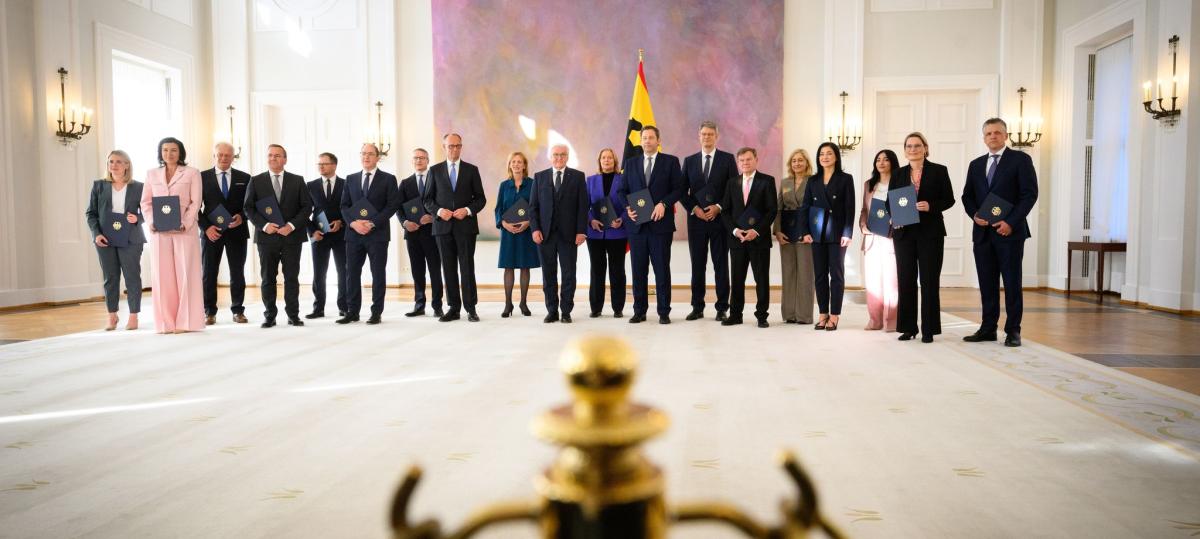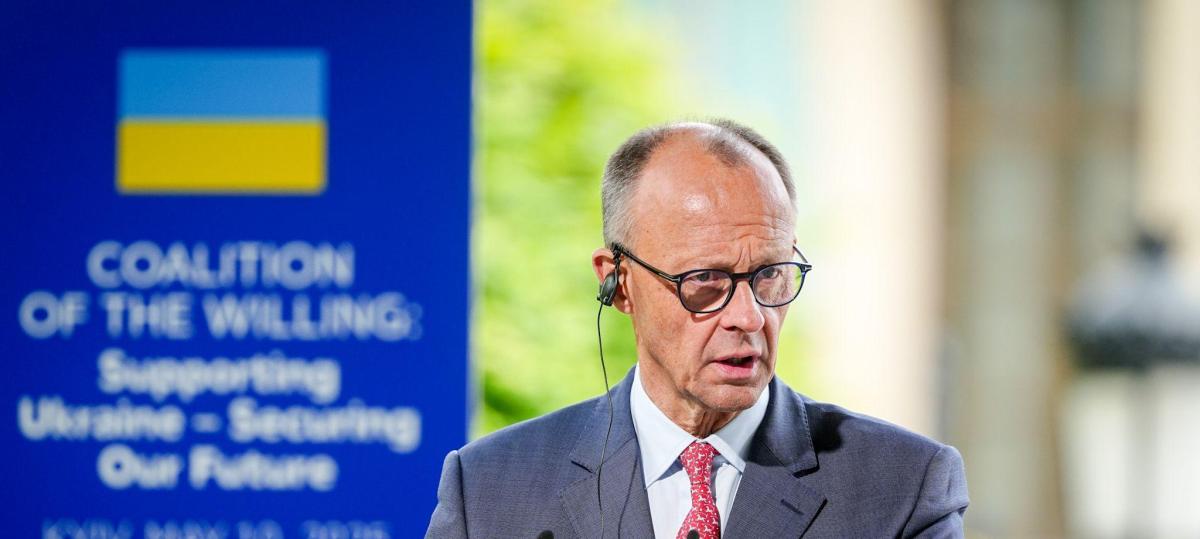Who gives the state and the economy new swing

The German economy is paralyzed in the third year. The future comes from America and China. The state is stuck in the paper age. The finding is depressing. The fresh government coalition CDU/CSU and SPD has set out to open the windows and let fresh air in. There are three ministers who are responsible for this. Katherina Reiche (CDU) takes care of the economy, the CSU woman Doro Bär for research, technology and space travel and the previous top manager Karsten Wildberger for digitization.
Much procuration, but not yet a ministry – Wildberger’s difficult task
The previous head of the roof group of the MediaMarkt-Saturn electronics chain takes over the demanding mission to bring the crusted administration up to date. From the organizational decree of the Federal Chancellor – who regulates the establishment of the new government – it can be seen that Friedrich Merz wants to give the top manager a free hand. « A Federal Ministry of Digital and State Modernization is formed, » it says under point 1. Later it is stated that the new house is awarded around two dozen departments from other ministries.
From the Chancellery, for example, the responsibilities for strategic foresight and fundamental issues of digital policy change, from the Ministry of Transport, the digital infrastructure, the Ministry of Economic Affairs of Bureaucracy and the Ministry of the Interior loses the sovereignty for the computer and data systems of the federal authorities. Merz receives praise for his approach from the digital industry. « The structure and competencies of the new Digital Ministry Send a clear signal: The Federal Government names digitization as a central task of future government action with its own department, » said the President of the Bitkom industry association, Ralf Wintergerst.
Support also comes from the initiative of state modernization for the two known Ex-Minister Thomas de Maizière (CDU) and Peer Steinbrück (SPD), the former constitutional court president Andreas Voßkuhle and the media manager Julia Jäkel. « Friedrich Merz and his cabinet are serious about digitization and state modernization, » said Jäkel of our editorial team. The new ministry is strong and geared towards implementation. « In any case, we no longer have time for half -hearted attempts, we have to get into action, » said the former boss of the publisher Gruner + Jahr.
Wildberger’s problem is that he has no property and no household yet. In the meantime, its new department uses a property of the Interior Ministry.
Doro Bär- completely detached for Bavaria’s aerospace industry
In the coalition negotiations, the CSU has secured a significantly upgraded ministry of research and occupied with Doro Bär. Instead of taking care of the basic research of the Max Planck and Helmholtz Society as before and putting money at the door for the presenting schools, the 47-year-old has significantly more influence. From the Ministry of Transport, she receives responsibility for drones and cosmic communication, from the Ministry of Economic Affairs the departments for technology policy, space travel and control over the agency for jump innovations.
The CSU woman receives advance laurels from the Federal Association of Aerospace Industry (BDLI). « Ms. Bär is already known to us as an experienced politician for future topics. We are now hoping for the necessary boost for the German space travel, » said Bdli boss Marie-Christine von Hahn of our editorial team. She demanded that the new government had to list the funds for the European space agency ESA and the national space budget noticeably. In Bavaria, a focus on the production of drones and rockets has formed between Munich and Augsburg.
Katherina Reiche – the mistress of the energy transition
The new Minister of Economic Affairs seems made for the office. Many years of political experience in the Bundestag as a deputy and state secretary, many years of experience as head of the energy supplier Western energy. Katherina Reiche is said to smooth the rashes of the German energy transition and finally ensure affordable electricity. The conversion to renewable energies is burdening the economy and consumers with high prices. The system also lacks flexible gas power plants that step in when wind and sun fail their service. If Germany wants to preserve its basic and heavy industry, the CDU politician from Brandenburg must be successful.







:format(webp)/s3/static.nrc.nl/wp-content/uploads/2025/05/09132811/data131991960-e06ae8.jpg)
